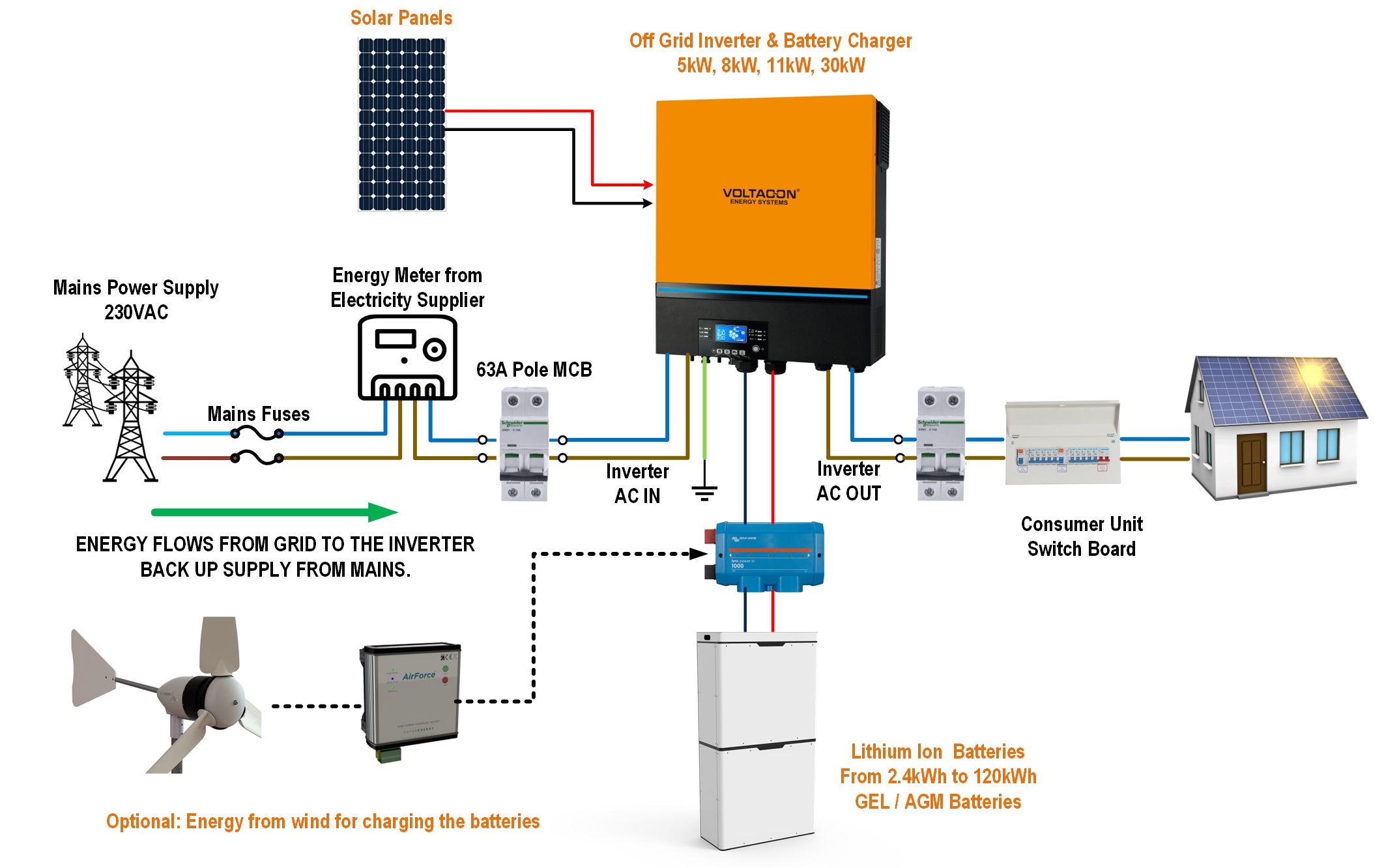
🌞 Introduction to Solar Power Systems
As the demand for clean and reliable energy continues to rise, solar power has become one of the most popular and accessible renewable energy sources in the world. Whether you live in a city, a village, or a remote area, solar power can offer a sustainable solution to your electricity needs.
In this post, we’ll cover the basics of what solar power is, its key benefits, and the main types of solar systems available today.
🔋 What is Solar Power?
Solar power is the energy we get from the sun. Through the use of solar panels (photovoltaic cells), sunlight is converted into electricity that can be used to power homes, businesses, and even entire communities.
This electricity can be used directly, stored in batteries for later use, or fed into the national grid, depending on the type of solar power system you choose.
✅ Benefits of Solar Energy
Here are some of the major benefits of using solar energy:
- Eco-Friendly
Solar power is a clean, green source of energy that reduces carbon emissions and pollution. - Saves Money
Once installed, solar systems can significantly reduce your electricity bills. In many cases, you can even earn credits through net metering. - Low Maintenance
Solar systems require very little maintenance. Most solar panels come with a 20–25 year warranty. - Energy Independence
You no longer need to rely solely on utility companies. Solar energy gives you more control over your power source. - Works in Remote Areas
Solar is a game-changer for rural and off-grid locations where traditional electricity supply is not available.
☀️ Types of Solar Power Systems (Brief Intro)
There are three main types of solar power systems. Each one is designed to meet different energy needs and budgets:
1. Off-Grid Solar System
- Not connected to the utility grid.
- Uses batteries to store excess energy for use at night or during cloudy days.
- Ideal for remote areas without access to grid electricity.
2. On-Grid (Grid-Tied) Solar System
- Connected to the local utility grid.
- Any excess power can be sent to the grid (often with credits via net metering).
- Suitable for homes and businesses in urban areas.
3. Hybrid Solar System
- Combines both off-grid and on-grid features.
- Uses batteries for backup and can still send excess energy to the grid.
- Offers the flexibility of power storage and grid connection.
Add a Comment